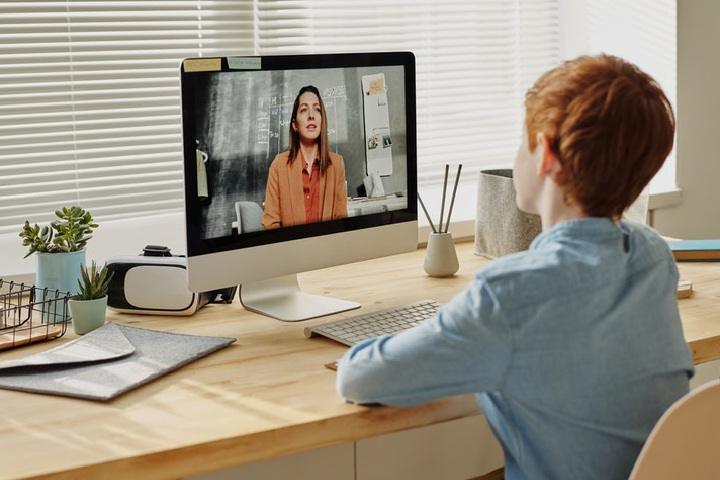Mobile Addict: Mobile, tablet, social networks, video games One in 5 minors makes new technologies compulsive. To prevent a mobile addict, you have to take measures since you are little.
Half of the children under 14 already have a mobile addict on their mobile. But according to a recent study, the actual age at which they have their first phone could still be lower: 45% have it between 6 and 12 years old.
The percentage of teenage people between the ages of 14 and 18 who make compulsive use of the internet and technologies has increased from 16% to 21% between 2015 and 2017.
Given the increase in this problem, the Technological Mobile Addict Attention Service cares for adolescents from 12 to 17 years old.
1. When to Buy Your First Mobile
“It is important when the child can have this type of device and which places and applications they can access. And that will depend on age.”
The expert distinguishes the following stages:
Until 3-4 years: it is not recommended that they use the mobile phone or any other device, even if they do not use it to access the internet, but only to touch it, play games, or see drawings.
” Many times parents leave their mobile phones or tablets to their children from an extremely young age to entertain themselves, that they don’t “bother” and stay still. ”
WhatsApp has raised the minimum age of users to 16 years.
At 11-12 years: they may already have their mobile, but it is not convenient that they have access to the internet, social networks, or depending on which video games.
” They should have it only to make or receive calls and, in any case, have a game that has been supervised by the parents.” And remember that WhatsApp, for example, has just raised the minimum age to register from 13 to 16 years.
In the middle of 12 and 17 years old: they can have access to the internet and the networks, but always with the parents’ supervision.
2. 3 Keys Against the Abuse of Technologies
According to the Service for Attention to Technological Addictions director, parents must promote healthy habits and a relationship of trust:
a. Offer Them Other Leisure Alternatives
” The work must start when their children are very young. They must give them other entertainment alternatives that are not in front of a screen, play with them, promote physical contact, displays of affection, outdoor activities … “, explains the specialist.

b. Set a Good Example for a mobile addict
“We communicate and teach more by what we do than by what we say. If we tell children that they cannot use the mobile when we are eating, or talking, and we do it instead, they can feel that we are cheating on them “, warns.
This prevents them from growing up thinking that their only source of fun is on the screens
However, he clarifies: ” But you also have to make them understand that adults and children live different situations and that the use they can make of the devices is not the same .”
c. Promote Communication
According to the expert, when children are young, they must be given clear rules and be firm, without entering into the debate.
But as they grow up, from 12-13 years old, it is increasingly important to communicate and involve them in the negotiation.
” The best control strategy is to build trust in the relationship. This does not mean that you let them do what they want, but rather show them that they can speak to their parents about anything.
That they are listened to, and that there may be differences of opinion without this leading to a fight or estrangement, “he says.
3. What Limits Must Be Set
The expert explains that two factors must be considered: the time children use the devices and continuity, that is, the time they are in front of a screen:
- Before the age of 7, they should use devices for a maximum of 1 hour a day, ” and these include mobiles and tablets, but also television .”
- Between 7 and 12 years, a maximum of 2 hours a day negotiated, but not followed.
- From 12, ” the recommended is still 2 hours, but they can be continuous .”
A tip: negotiate a day a week when no device is used
In all cases, he recommends agreeing to one day a week “free” of any device, ” that is, not to be used, and take advantage of that day to offer the child other entertainment alternatives .”
4. Talk About the Dangers of Networks
The least age to open an account on Facebook and other networks is 14 years old. But this limit is seldom met.
To stop them from accessing inappropriate content for their age, parents should install parental control applications.
Placing the computer or tablet in common spaces, such as the dining room, helps control the websites they access and their time in front of the screen.
Discussing risks can help you identify them and ask for help.
And in preadolescence and adolescence, the consequences of using the internet and social networks can already be explained.
“Talk to them about the dangers, what is physical, verbal or psychological violence, gender, harassment, sexuality … so they can identify if they are in a situation like that. And make them feel that they can ask for help or ask without shame “.
5. The Signs of a “Technological Addiction”
According to the Service for Attention to Technological Addictions director, these signs should alert parents that their child depends on the devices:

It only relates to the internet or video games; it only has virtual relationships.
The use of technology alters your responsibilities in daily life: in your hygiene, sleep routines, in your performance at school.
When several of these signs occur, help should be sought.
Shows signs of stress, nervousness, or disturbance when the device is removed, or when the household goes out to eat or do some activity outside the home and cannot connect.
6. Therapy for Parents and Children
The Technological Addictions Attention Service offers treatment for boys and girls from 12 to 17 years old.
On the one hand, they have a prevention and orientation service where they carry out group workshops for parents and adolescents to enroll directly.
Minors are referred to the service by a medical or college professional.
On the other, they offer specialized treatment with family, individual, and group therapy for minors. In this area, cases are referred by a professional, either from social services, a doctor, or a counselor from the institute.
And it is that, as the head of the service reminds us, ” new technologies bring many benefits, but if they do not learn to make conscious and responsible use, they can be harmful .”

